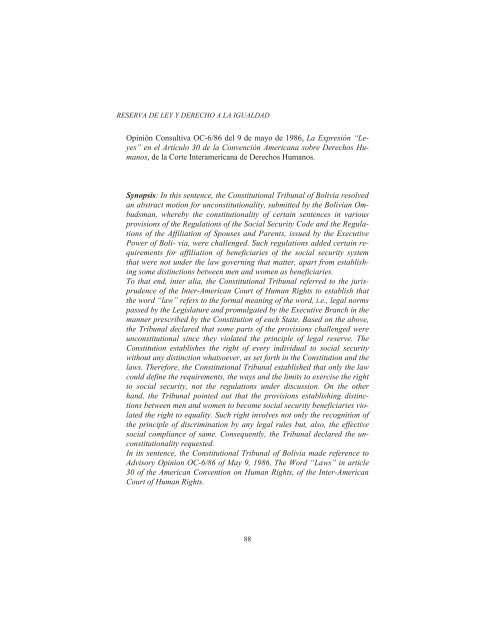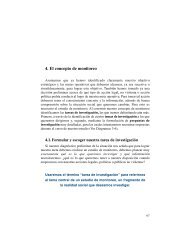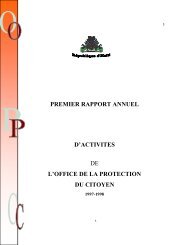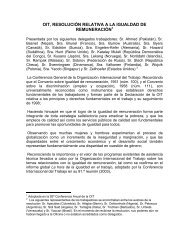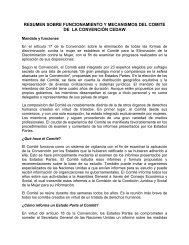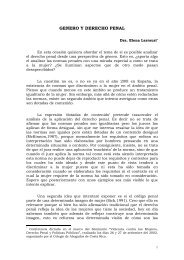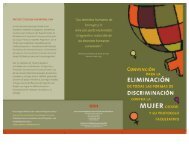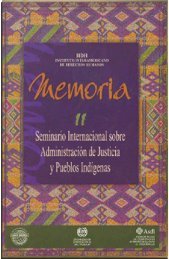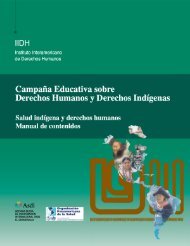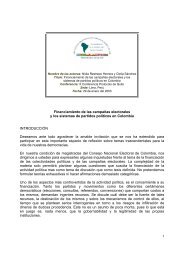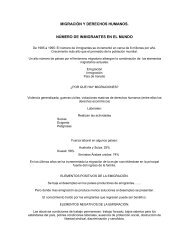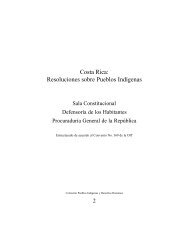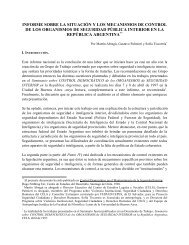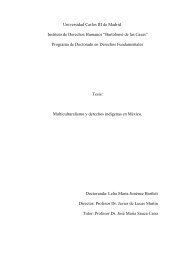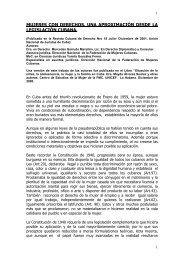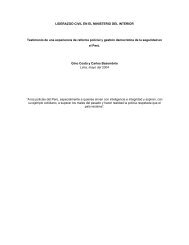diálogo jurisprudencial - Instituto Interamericano De Derechos ...
diálogo jurisprudencial - Instituto Interamericano De Derechos ...
diálogo jurisprudencial - Instituto Interamericano De Derechos ...
Create successful ePaper yourself
Turn your PDF publications into a flip-book with our unique Google optimized e-Paper software.
RESERVA DE LEY Y DERECHO A LA IGUALDAD<br />
Opi nión Con sul ti va OC-6/86 del 9 de mayo de 1986, La Expre sión “Le -<br />
yes” en el Artícu lo 30 de la Con ven ción Ame ri ca na so bre <strong>De</strong> re chos Hu -<br />
ma nos, de la Cor te Inte ra me ri ca na de <strong>De</strong> re chos Hu ma nos.<br />
Syn op sis: In this sen tence, the Con sti tu tional Tri bu nal of Bolivia re solved<br />
an ab stract mo tion for un con sti tu tion al ity, sub mit ted by the Bo liv ian Om -<br />
buds man, whereby the con sti tu tion al ity of cer tain sen tences in var i ous<br />
pro vi sions of the Reg u la tions of the So cial Se cu rity Code and the Reg u la -<br />
tions of the Af fil i a tion of Spouses and Par ents, is sued by the Ex ec u tive<br />
Power of Boli- via, were chal lenged. Such reg u la tions added cer tain re -<br />
quire ments for af fil i a tion of ben e fi cia ries of the so cial se cu rity sys tem<br />
that were not un der the law gov ern ing that mat ter, apart from es tab lish -<br />
ing some dis tinc tions be tween men and women as ben e fi cia ries.<br />
To that end, inter alia, the Con sti tu tional Tri bu nal re ferred to the ju ris -<br />
pru dence of the Inter-Amer i can Court of Hu man Rights to es tab lish that<br />
the word “law” re fers to the for mal mean ing of the word, i.e., le gal norms<br />
passed by the Leg is la ture and pro mul gated by the Ex ec u tive Branch in the<br />
man ner pre scribed by the Con sti tu tion of each State. Based on the above,<br />
the Tri bu nal de clared that some parts of the pro vi sions chal lenged were<br />
un con sti tu tional since they vi o lated the prin ci ple of le gal re serve. The<br />
Con sti tu tion es tab lishes the right of ev ery in di vid ual to so cial se cu rity<br />
with out any dis tinc tion what so ever, as set forth in the Con sti tu tion and the<br />
laws. There fore, the Con sti tu tional Tri bu nal es tab lished that only the law<br />
could de fine the re quire ments, the ways and the lim its to ex er cise the right<br />
to so cial se cu rity, not the reg u la tions un der dis cus sion. On the other<br />
hand, the Tri bu nal pointed out that the pro vi sions es tab lish ing dis tinc -<br />
tions be tween men and women to be come so cial se cu rity ben e fi cia ries vi o -<br />
lated the right to equal ity. Such right in volves not only the rec og ni tion of<br />
the prin ci ple of dis crim i na tion by any le gal rules but, also, the ef fec tive<br />
so cial com pli ance of same. Con se quently, the Tri bu nal de clared the un -<br />
con sti tu tion al ity re quested.<br />
In its sen tence, the Con sti tu tional Tri bu nal of Bolivia made ref er ence to<br />
Ad vi sory Opin ion OC-6/86 of May 9, 1986, The Word “Laws” in ar ti cle<br />
30 of the Amer i can Con ven tion on Hu man Rights, of the Inter-Amer i can<br />
Court of Hu man Rights.<br />
88


